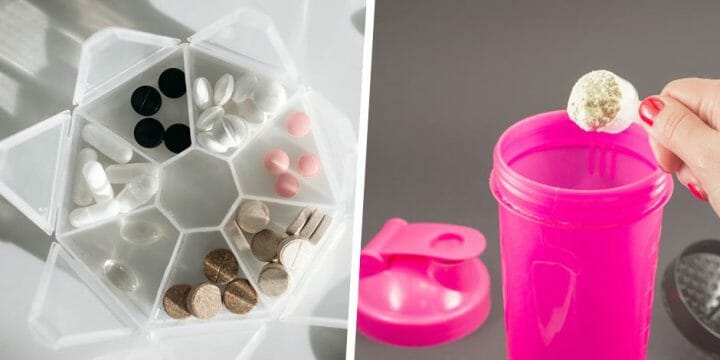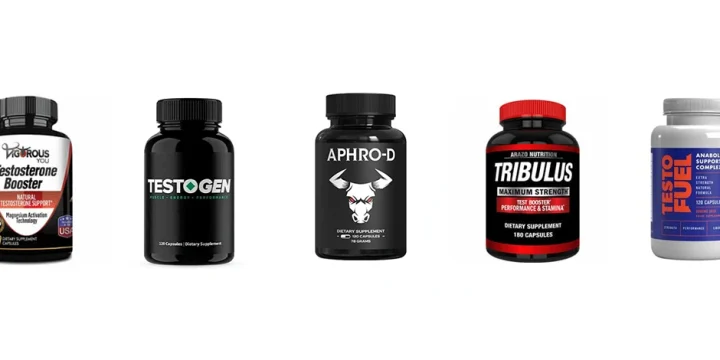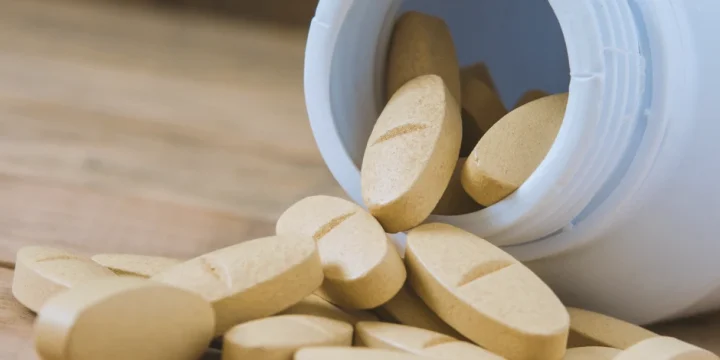Low testosterone symptoms include reduced energy, focus, muscle strength, and sex drive.
We would all like to regain testosterone without resorting to medical treatments, and the good news is that there is a way to do it.
I’ve shared some of the natural testosterone boosters with my clients, and they’ve noticed significant improvements in their T levels.
Maintain healthy testosterone levels through regular exercise, balanced nutrition, and adequate sleep. I decided to put all the information into one article so you could also benefit. Let’s dig in.
Quick Summary
- Some natural testosterone-boosting supplements are zinc, garlic, ashwagandha, vitamin D, fish oil, oysters, and leafy green vegetables.
- Natural testosterone boosters are natural remedies that are used to increase testosterone levels so that you maintain high libido and energy levels.
- We found that men receiving 30 mg of zinc daily experienced an increase in their body's testosterone levels.
- In my opinion, a balanced lifestyle and consuming testosterone-boosting foods like leafy greens and fatty fish help you increase testosterone levels.
7 Testosterone Boosting Supplements

Here are some natural supplements or food sources that can help maintain healthy testosterone levels.
1. Garlic
Garlic has many health benefits, and there's plenty of evidence that it helps increase your T levels and improve sexual function.
Research from the National Library of Medicine suggests that garlic helps improve blood flow, which might help treat erectile dysfunction [1].
Garlic is also known to increase sperm production and testosterone levels, probably due to its antioxidant properties [2].
Related Article: Best Odorless Garlic Supplements
2. Zinc
Zinc deficiency can disrupt the pituitary gland (the pea-sized gland in the base of the brain) from producing key hormones that stimulate T production.
A particular study found that men receiving 30 mg of zinc daily increased T levels in their bodies [3].
Another study where zinc-deficient older men took zinc supplementation for six months showed increased serum testosterone levels (total testosterone levels in your blood) [4].
Zinc is also known to improve sperm quality.
Some good sources of zinc include:
- Whole grains
- Milk products
- Red meat
- Baked beans
- Chickpeas
- Nuts
3. Vitamin D

D-Aspartic acid, vital for boosting testosterone, works with vitamin D, produced by sun exposure, to maintain healthy T levels.
The Library of Medicine mentions men with high vitamin D levels showed higher testosterone levels than those with vitamin D deficiency [5].
Vitamin D increases the luteinizing hormone, which is a hormone that controls the production of free testosterone.
Besides getting enough sunlight, you can supplement vitamin D and consume foods high in vitamin D, such as seafood, egg yolks, and fortified foods.
Related: Best Vitamins To Boost Testosterone
4. Ashwagandha
Ashwagandha, a nootropic herb known as Indian Ginseng or Winter Cherry, boosts testosterone and lowers cortisol, aiding in testosterone deficiency.
There's plenty of evidence that shows Ashwagandha increases T levels. Men who took Ashwagandha extract for eight weeks showed a boost in their testosterone levels [6].
Also, this herb helps in reducing stress levels and managing anxiety and depression, which all together increases testosterone levels.
Here is our article on the best Ashwagandha supplements.
5. Oysters
Oysters are highly rich in zinc, which can help in sperm production and encourage testosterone production. It's also known to boost dopamine, which is known to help increase sex drive.
6. Leafy green vegetables
The National Library of Medicine mentions those with poor testosterone levels may want to add more leafy green vegetables. These leafy green vegetables are rich in magnesium, which helps increase testosterone production [7].
7. Fatty fish and fish oil
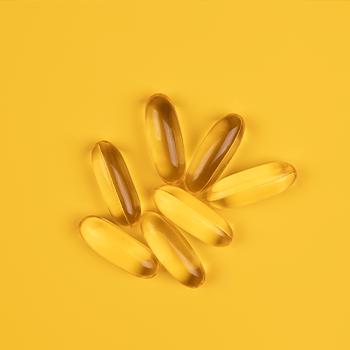
Research shows that fatty fish and fish oil may also help reach normal testosterone levels in the body.
Fatty fish may be beneficial because it's high in omega-3 fatty acids.
Other studies show that omega-3 or fish oil supplements increase testosterone levels, helping raise fertility among men.
Here is our article on the best Omega 3 supplements.
Here are some of the fish high in omega-3 fatty acids:
- Herring
- Salmon
- Atlantic mackerelardines
- Trout
What Are Natural Testosterone Boosters?
Natural testosterone boosters, including certain foods and supplements, enhance energy, libido, and performance.
They are not meant to treat severely low testosterone, but they help maintain healthy testosterone, especially as you age.
Testosterone: What Is It and How Does it Affect Your Health?

Testosterone is the primary male sex hormone, although women's bodies also produce testosterone at lower rates. Testosterone controls:
- Sexual development
- Fat distribution
- Muscle mass and muscle strength
- Bone health
- Red blood cell production
- Human behavior
Testosterone levels start to drop as men age. However, studies have shown that maintaining healthy testosterone levels is essential for health in several ways:
- Reduced risk of cardiovascular heart diseases, obesity, and diabetes [8,9,10]
- Improving sexual dysfunction [11]
- Enhancing body composition [12]
- Managing depression [13]
- Improving the overall quality of men's life [14]
- Improving well-being, mood, and sexual function for premenopausal women [15]
Further studies show that men and women should ensure healthy testosterone production to maintain a quality lifestyle, especially as they age [16,17].
Here's how you can naturally boost testosterone.
Proven Ways to Naturally Increase Testosterone

We will also go through all the scientifically based ways to increase testosterone, including lifestyle changes.
1. Exercise Regularly and Lift Weights
Low testosterone levels are linked to obesity, increased fat loss, and decreased muscle growth.
Exercise helps lose weight and build more muscle. So, the more pounds you lose and the more muscle you build, the higher your testosterone levels.
Research involving obese men showed that increased physical activity is far more effective in increasing testosterone levels than maintaining a healthy diet [18].
"I recommend doing strength training or lifting weights for 30 to 45 minutes two to three times per week for increasing your T levels. Do cardiovascular exercise or high-intensity interval training on your off days."
— Richard Jadick, D.O., Piedmont Urologist
Exercises that effectively boost testosterone are resistance training and high-intensity interval training. Physical activity can also lower blood pressure, improve mood, and help balance hormone levels.
2. Get Plenty of Quality Sleep

Poor sleeping patterns affect your well-being, and research further tells us that it also affects your hormone levels, including testosterone.
One study shows that men who slept less than 5 hours every night had a 15% decrease in their testosterone levels [19].
Experts suggest getting enough sleep of about 7 to 8 hours is beneficial to maintaining healthy testosterone levels and overall health.
3. Minimize stress
Several studies have shown that cortisol (stress hormone) works against testosterone, like a seesaw: when one goes up, the other comes down.
What's more, it becomes a vicious cycle — the lower testosterone levels can cause stress, causing the testosterone levels to drop even lower.
High cortisol levels can also cause weight gain, negatively impacting testosterone levels.
On the flip side, managing stress can boost T levels. So, stress-management techniques, such as meditation or breathing techniques, and a well-balanced lifestyle can boost testosterone levels and improve men’s health.
4. Avoid exposure to estrogen-like chemicals
Be careful about the food and drinks packaged in plastics or cans because studies show that BPA, parabens, and other chemicals can cause normal testosterone levels to drop.
Results of a study where workers in BPA-exposed factories showed significantly decreased testosterone levels than workers who didn't [20].
Here are ways to reduce your exposure to estrogen-like chemicals:
- Buy fresh, frozen, or dried foods instead of canned
- Limit buying packaged food
- Never heat canned food
- If you can't avoid buying foods in BPA-lined cans, rinsing the food in water may reduce BPA levels in the food
- Look for alternative products that are stored in BPA-free containers
5. Limit alcohol consumption
Excessive alcohol consumption has been proven to mess up your hormone levels. Alcohol can have both short-term and long-term effects on your testosterone.
Heavy drinkers usually have higher levels of the female hormone estrogen, which affects sperm count.
On the contrary, moderate alcohol consumption does not affect testosterone levels.
Should You Opt for Natural Boosters or Consider TRT for Low Testosterone?
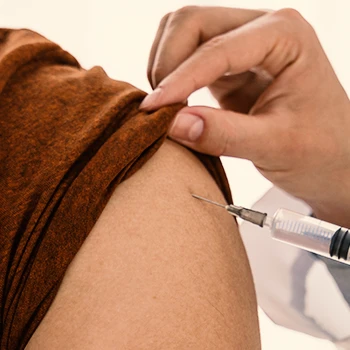
It's good to note that these T-boosting supplements or food sources are not meant to treat medical conditions, such as hypogonadism or low T levels.
Expertise shared in our Fountain TRT review suggests that natural boosters can be beneficial but are not a replacement for medical interventions.
Testosterone replacement therapy (TRT) or androgen replacement therapy is one of the treatment options for low T levels.
There are several forms of this testosterone therapy: skin patches, gels, injections, and implants.
There are also testosterone supplements that have natural ingredients. But, it's essential to do enough research or consult a doctor who can provide professional medical advice before buying these supplements.
Related Articles:
FAQs
Which Foods Increase Testosterone the Most?
These food sources help your bodies produce more testosterone: Ginger, Leafy green vegetables, Fatty fish and fish oil, Egg yolks, and Oysters.
What Is the Leading Cause of Low Testosterone?
Testosterone naturally declines with age, and studies show the risk of developing low levels of T or hypogonadism is higher in men aged 40 and up. But, there are other factors at play, including lifestyle, nutrition, injury or trauma, cancer chemotherapy, and chronic health conditions.
References:
- https://pubmed.ncbi.nlm.nih.gov/9345114/
- https://pubmed.ncbi.nlm.nih.gov/26839520/
- https://pubmed.ncbi.nlm.nih.gov/21709300/
- https://pubmed.ncbi.nlm.nih.gov/21709300/
- https://pubmed.ncbi.nlm.nih.gov/10442580/
- https://pubmed.ncbi.nlm.nih.gov/19625884/
- https://pubmed.ncbi.nlm.nih.gov/17178553/
- https://pubmed.ncbi.nlm.nih.gov/14501599/
- https://pubmed.ncbi.nlm.nih.gov/7714119/
- https://pubmed.ncbi.nlm.nih.gov/6841562/
- https://pubmed.ncbi.nlm.nih.gov/26798202/
- https://www.ncbi.nlm.nih.gov/pmc/articles/PMC4445839/
- https://pubmed.ncbi.nlm.nih.gov/19906654/
- https://pubmed.ncbi.nlm.nih.gov/28554988/
- https://www.researchgate.net/publication/330360910
- https://www.asep.org/asep/asep/BrillaV2.PDF
- https://pubmed.ncbi.nlm.nih.gov/8875519/
- https://pubmed.ncbi.nlm.nih.gov/20050857/
- https://www.ncbi.nlm.nih.gov/pmc/articles/PMC6438434/
- https://pubmed.ncbi.nlm.nih.gov/20352370/
About The Author
You May Also Like
